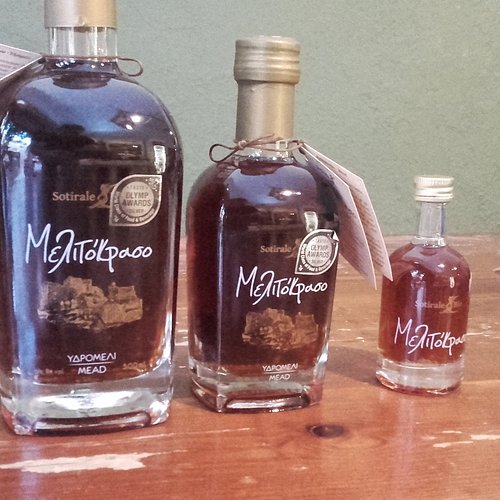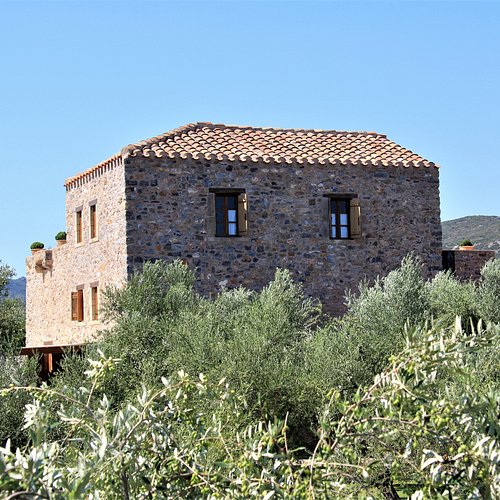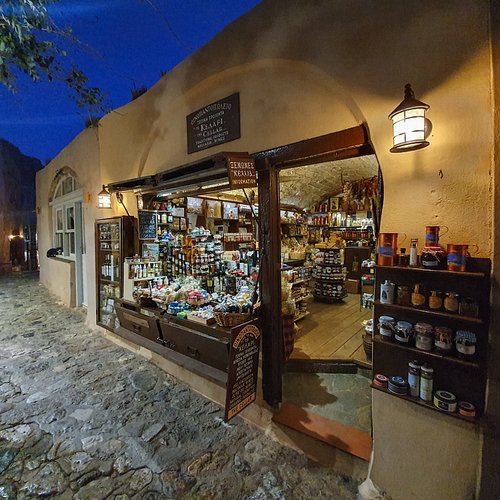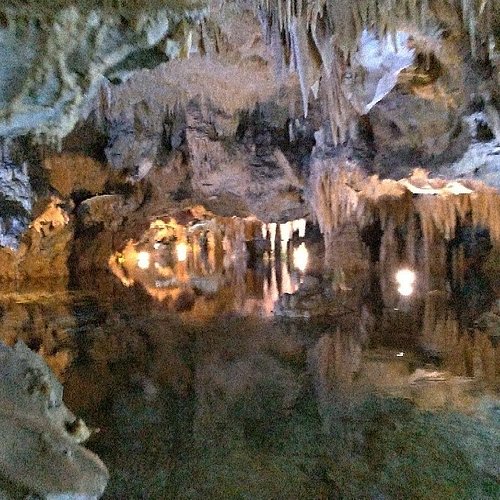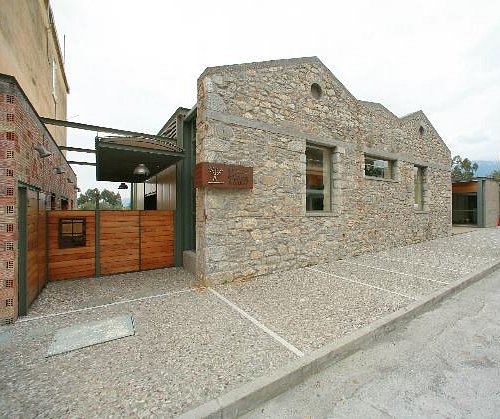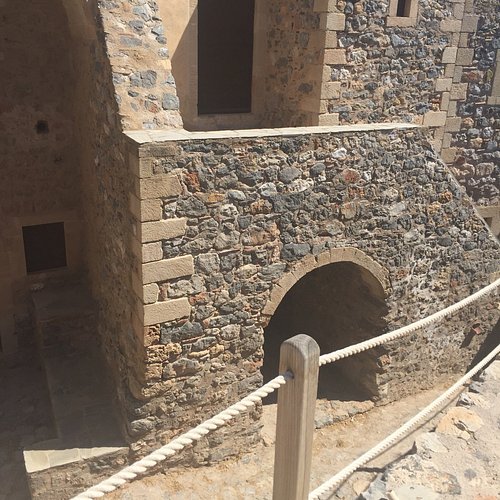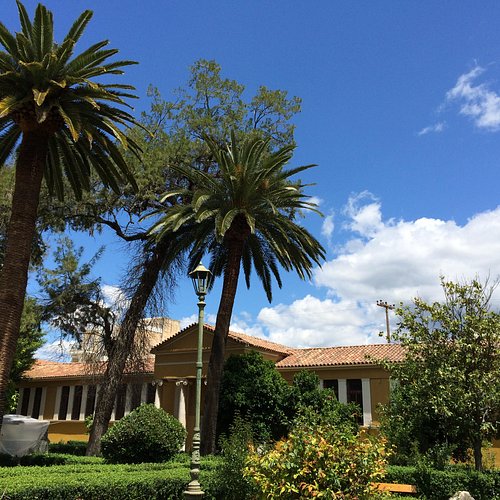Top 9 Things to do Good for a Rainy Day in Laconia Region, Peloponnese
Discover the best top things to do in Laconia Region, Greece including Edodimopolio Honey Shop wine and olive oil store, Kastania Cave, Liotrivi Monemvasia - Historical Mansion, Zervobeakos Handmade Pottery, To Kelari - Kastro Monemvasias, Caves of Diros, Museum of the Olive and Greek Olive Oil, Archaeological Collection of Monemvasia, Archaeological Museum of Sparta.
Restaurants in Laconia Region
1. Edodimopolio Honey Shop wine and olive oil store
Overall Ratings
5.0 based on 64 reviews
We Welcome You To Our Fantastic Store Inside In That Historical Rocky Boat Monemvasia Castle!the Name Of Our Shop Is "edodimopolio"we Are Olive Oil Producers For 3 Generations In Our Olive Oil "benios"and We Are Famous For The Honey Wine Of "sotirali Family" We Do Free Tasting For All Our Products Uncluded Free Tasting Of Malvasia Wines And Here You Can Find Our New Company "monemvasia Cosmetics"with Aromas Of The Rock As Pircky Pear ,myrtile,cyclamen. Amazing Local Products For You And Your Friends! Please Do Not Miss To Learn More About Us And Our Products!
2. Kastania Cave
Overall Ratings
5.0 based on 260 reviews
One of the most impressive caves of Greece can be found near the village of Kastania on the southern tip of the Peloponnese, just minutes away from Neapoli. The route follows the winding mountain road leading to the forest-covered eastern slopes of Mt. Parnon. Rich in density and variety of shapes, colors and figures, Kastania Cave is classified as second of its kind in Europe. Nature needed three million years to create this fantasyscape with its unparalleled decor and numerous impressive formations such as enormous red and white "waterfalls", the gigantic columns, the "curtains" and the "sheets" that overflow like waxwork from the roof, "octopuses" and "corals" nest, "elephants" and "mushrooms", "birds" and caricatures, "exotic plants" and monumental creatures... Standing out among the numerous attractions of the cave are geological rarities such as discs, flat stalagmites, eccentrites and elictites. With a little luck, visitors may meet the cave's noble resident insect, the deaf and blind dolichopoda. The cave's surface covers 1,500 square meters separated into two levels and the visitor is guided along a 500-meter route. The cave was formed from limestones of Jurassic age (195-145 million years old) as a result of geological turmoil and chemical reaction. The stone decor owes its seven-color palette to crystalline carbonate lime enriched with several metal oxides. A cafe operates right outside the cave and nearby is the old church of St. Andrew, scarred by pirates and conquerors
Reviewed By mtO1882LB - Melbourne, Australia
Well worth the drive up some very steep hills to visit this. The cave is visually stunning with some incredible formations of both Stalactites & Stalagmites in various brown reddish orange colours. The guide is well informed and willing to answer any questions posed.
3. Liotrivi Monemvasia - Historical Mansion
Overall Ratings
5.0 based on 15 reviews
Reviewed By ThomasJ794
My wife and I were visiting Monemvasia for the first time and decided to go to a wine tasting here. The Liotrivi Historical Mansion is a short drive from Monemvasia and easy to find once you get to Velies, a few kilometres inland in pleasant wine and olive growing country. The wine tasting was a superb experience, very professionally and knowledgeably delivered by the friendly staff (Rula, Bill and Jim), in the splendid surroundings of the historical museum. We also tasted the olive oils, and having discovered that we really liked some of the wine and oil we tasted, bought some to bring back home to the UK with us. The only thing that left me scratching my head was, why is this lovely wine not more widely available in the UK? It is more than a match for wines I've tasted from other parts of Europe. In summary, a great place to visit.
4. Zervobeakos Handmade Pottery
5. To Kelari - Kastro Monemvasias
Overall Ratings
5.0 based on 32 reviews
6. Caves of Diros
Overall Ratings
4.5 based on 1,309 reviews
A large underground network of caves full of strangely shaped rock formations.
Reviewed By JohnV801 - Athens, Greece
One of the most beautiful caves I have visited. To start off with the facilities were very well kept, very clean and all Covid measures adhered to. The sheer beauty we encountered during the short boat ride and walk through the cave was really something else. We dwarfed in comparison to the age and beauty of this phenomenon. Stalactites and stalagmites dating back ages in colors of nature that no human hand could achieve. Well worth the trip.
7. Museum of the Olive and Greek Olive Oil
Overall Ratings
4.5 based on 266 reviews
The Museum of the Olive and Greek Olive Oil, in Sparta (Peloponnese), transports you to the culture, history and technology of the olive and olive oil production in the Greek realm, from prehistoric times to the early 20th century. The Museum's objective is to highlight the ineffable relation of the olive with the identity of our country and, more generally, the Mediterranean basin. The olive and olive oil are presented here from different optical angles: the economy, nutrition and the olive's uses, religious worship, art and technology. The Museum of the Olive and Greek Olive Oil offers you the opportunity to see the very first testimonies about the presence of the olive tree and the production of olive oil in Greece: Rare fossilized olive leaves, 50,000-60,000 years old, from the island of Santorini, the oldest findings offering proof of the presence of the olive tree en Greece Linear B Tablets of the 14th century BC (exact replicas), with the first written testimonies about the olive and olive oil.
Reviewed By Harolnick - New York City, United States
If you ever wondered why the Greeks prized the olive above even the arts, wonder no more. Yes, the two floors give info about cultivation etc. Most essential shows how s the olive was essential for light! cleanliness! religion! poetry! trade! etc etc. A massive amount of info, and a kind of olive pharmacy downstairs showing all the olive products.
8. Archaeological Collection of Monemvasia
9. Archaeological Museum of Sparta
Overall Ratings
3.5 based on 156 reviews
Reviewed By Haukeberg - Oslo, Norway
There is a lot of statues and pottery. Their priced possession is the statue of Leonidas from ancient times. It depicts a smiling Hoplite. Support the local museum and go see it.

